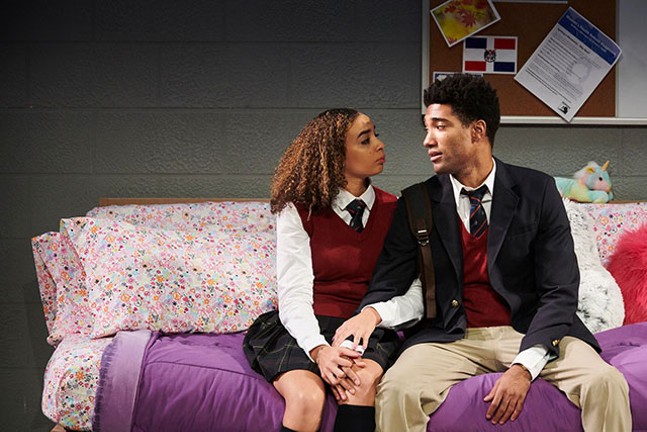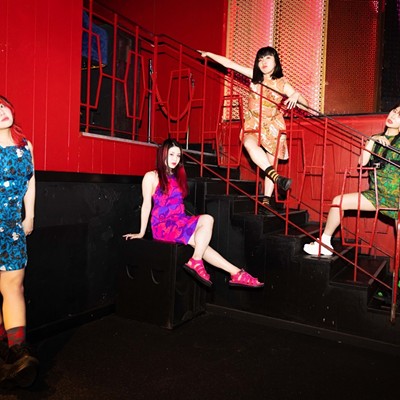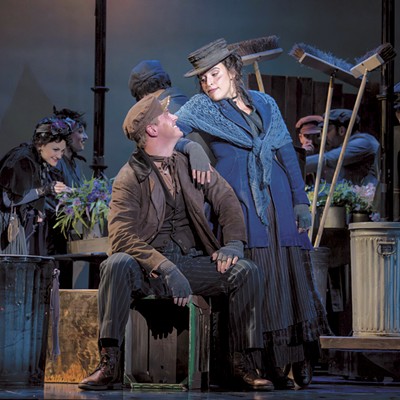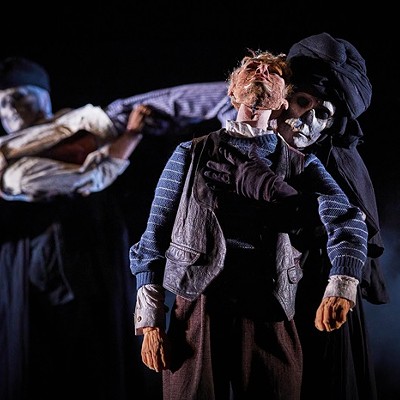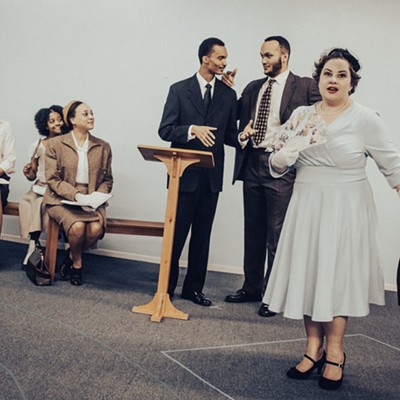It's OK to laugh at Pipeline. It's OK to make noise. Playwright Dominique Morisseau laid down the permissions in the program like this:
"My work welcomes a few 'um hmmms' and 'uhn uhnnns' should you feel the need to use them. Just maybe in moderation... This can be a church for some of us, and testifying is allowed."
Thank God. Pipeline — directed by Reginald L. Douglas, at City Theatre through Nov. 18 — is an electrifying, angry, deflating, joyful thing, and trying to bed down those emotions would be difficult and a disservice to its performers and producers.
The title alludes to the system of criminalizing behavior in students to the point of suspension/expulsion from school, leading young people, particularly Black people, into incarceration at a young age. This story follows a group of people trying to cut off that sequence before it's too late.
As the play opens, Omari (Carter Redwood) is facing expulsion from a private boarding school for an unnamed bout of violence in a classroom. The players in his support network are his mother Nya (Nambi E. Kelley), who works as a public school teacher with Laurie (Sheila McKenna) and security guard Dun (Gabriel Lawrence), as well as Omari's girlfriend Jasmine (Krystal Rivera) and father Xavier (Khalil Kain).
Though Omari's potential expulsion drives the story, his struggle — and that of Black families navigating white systems in general — is echoed in every supporting character. Jasmine is also a person of color at a white school, though she handles it differently than Omari. Xavier, divorced from Nya, has moved on from the old neighborhood, both literally and figuratively, and sees the private school as his son's ticket to vertical mobility. Laurie is a veteran white teacher in a predominantly Black school. Dun is just trying to keep school calm and safe for the students (and teachers).
As they push and pull to help Omari, each character reveals a healthy supply of flaws, bad judgment, and misdirected anger, but they are deeply likable and relatable. There are no angels or villains here, just people in tough situations making tough decisions. Morisseau, recent recipient of a MacArthur Foundation "Genius Grant," packs the story with moral ambiguities and gives no easy answers; the ending delivers no full stop. The racial systems at work here exist outside the play, and the audience is left understanding that they'll continue after the lights come up.
I didn't see any testifying myself, but laughing, crying, and the occasional gasp was audible throughout. Whether it's the spirited performances, the pitch-perfect original music provided by 1Hood Media Academy, Morisseau's crackling script, or the powerful use of stage and light design, you'll want to make some noise at Pipeline.

